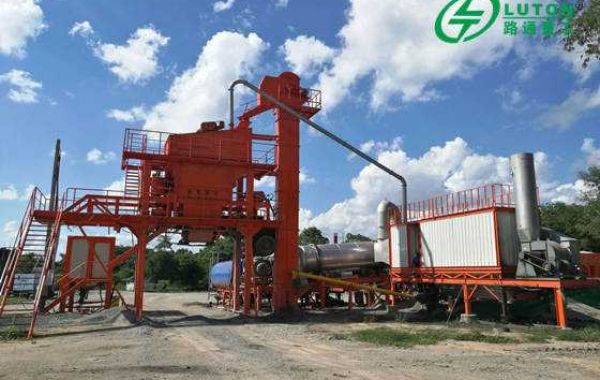There are many factors that affect the production capacity of asphalt mixing plants, and these factors may act alone or together, leading to fluctuations in the production capacity of asphalt mixing plants. The following are some main influencing factors.
Equipment performance and status
The performance, model, and specifications of asphalt mixing plant equipment directly affect its production capacity. The aging, wear, and lack of necessary maintenance and upkeep of equipment can lead to a decrease in component performance, affecting the stability and production efficiency of the equipment. Meanwhile, the design and manufacturing quality of equipment are also key factors determining its production capacity. (Land on lutonmachinery.com and you'll get more information on asphalt batching plant equipment.)
The quality and supply of raw materials
Factors such as the mix ratio of asphalt and concrete, the selection and moisture content of sand and gravel, and the calorific value of fuel all directly affect the quality and yield of asphalt mixtures. The unstable quality or insufficient supply of raw materials can lead to production interruptions and reduced production capacity.
Operator skills
The skill level, experience, and familiarity with equipment of operators have a significant impact on production capacity. Improper operation or lack of technical proficiency may lead to insufficient or excessive mixing time, insufficient or high oil temperature, affecting production efficiency and the quality of the mixture.
Production process and management
The optimization of production processes, the reasonable arrangement of production plans, and the management of production sites all have a significant impact on production capacity. Reasonable processes and effective management can reduce waste and delays in production, and improve production efficiency.
Natural environment and climate conditions
Natural environmental factors such as altitude, environmental temperature, and humidity can also affect the production capacity of asphalt mixing plants. The thin air and lack of oxygen in high-altitude areas may lead to combustion deterioration and reduce production capacity; Low temperature environments may lead to increased heat dissipation from the cylinder walls, slowed down heat transformation processes, and reduced productivity.
Market demand and policy environment
Changes in market demand and policy environment can also affect the production capacity of asphalt mixing plants. The increase in market demand may prompt mixing plants to increase production capacity to meet demand; The changes in policy environment, such as the strengthening of environmental protection policies, may require mixing plants to undergo technological upgrades or equipment upgrades, thereby affecting their production capacity.
In summary, there are various factors that affect the production capacity of asphalt mixing plants, and it is necessary to comprehensively consider and take corresponding measures to optimize and improve production capacity. This includes strengthening equipment maintenance and upkeep, improving raw material quality and supply stability, enhancing the skill level of operators, optimizing production processes and management, adapting to natural environmental changes, and flexibly responding to market demand and policy environment changes.







